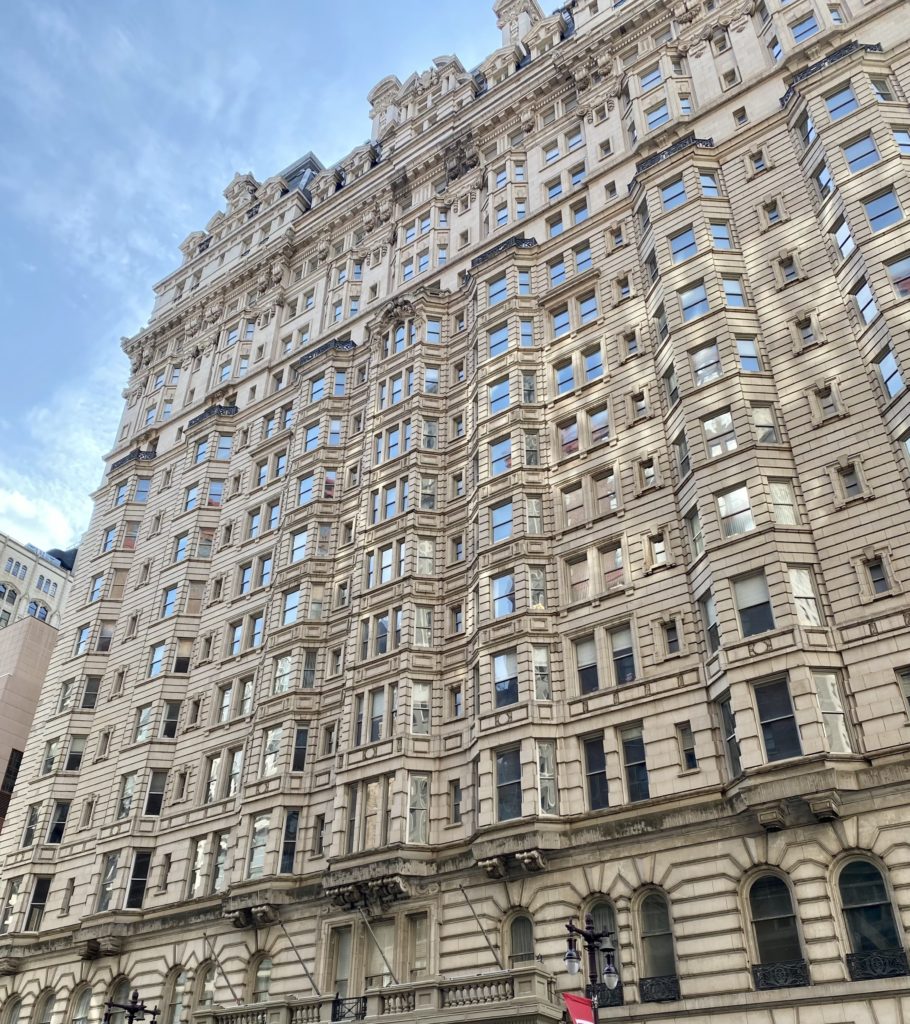How did Legionnaires Disease get its name?
The first outbreak of Legionnaires disease occurred in 1976 in Philadelphia, Pennsylvania. There, thousands of members of the American Legion were gathered to celebrate the 200th anniversary of the signing of the Declaration of Independence. Approximately 600 members American Legion were staying at the Bellevue-Stratford Hotel, located in the heart of Center City Philadelphia.
Very shortly after the convention began, several members of the American Legion became very ill. They all displayed pneumonia like symptoms. These symptoms included muscle aches, headaches, severe coughs, diarrhea, muscle and chest pains and fevers as high as 107 degrees.
Of the members of the American Legion, 182 were hospitalized and 29 died. In the coming months, it was discovered that not just American Legion members became ill or died. Other victims of the unknown disease included a bank teller who worked across the street from the Bellevue-Stratford Hotel and a bus driver who had transported a group of young cadets who marched in the convention’s parade.
This is how Legionnaires disease got its name. It is called Legionnaires disease because the first outbreak occurred at a conference of the American Legion, and therefore the bacteria and associated disease was named after them.
Source: The History Channel, CDC, American Society for Microbiology

Who is the American Legion?
The American Legion was chartered by Congress in 1919 as a patriotic veterans organizationToday, membership stands at nearly 2 million in more than 13,000 posts worldwide. It is composed of United States veterans and serves to help veterans and their families, as well as the broader community.
This mission statement is, “To enhance the well-being of America’s veterans, their families, our military, and our communities by our devotion to mutual helpfulness. The American Legion’s vision statement is “The American Legion: Veterans Strengthening America.” The American Legion’s value principles are as follows: A VETERAN IS A VETERAN – which means The American Legion embraces all current and former members of the military and endeavors to help them transition into their communities.”
Source: The American Legion
How Was The Investigation Conducted?
Ultimately, 34 people died and more than 200 became ill from the outbreak during the American Legion convention. Somewhat similar to what we have experienced in the era of COVID-19. The Centers for Disease Control and Prevention (CDC) launched an enormous investigation. Epidemiologists from the CDC joined with state health officials to look for answers to the mystery disease. It took more than 6 months, but eventually they cracked the case.
Source: The History Channel, CDC, American Society for Microbiology
What Led To The Eventual Discovery of Legionella?
A CDC microbiologist named Joseph McDade cracked the case in December of 1976. He identified the cause of the Legionnaires disease from the tissue taken from a victim’s lung. The unknown bacteria was named Legionella. Once the bacteria was identified, it was determined that the disease spread through the cooling towers on the roof of the Bellevue-Stratford Hotel. This explained why the reach of the disease went beyond just the guests of the hotel. Similar to the cause of many outbreaks today, the cooling tower systems on top of the Bellevue-Stratford Hotel let out mist contaminated with the Legionella bacteria that rained down on innocent passerbyers. Additionally, the air conditioning vents of the Bellevue-Stratford Hotel sucked in the contaminated mist from the cooling towers and then dispersed the mist throughout the hotel.
Source: The History Channel, CDC, American Society for Microbiology
For more information on the history of Legionnaires disease, check out this article from the New York Times here.
Legionnaires’ Disease Today
Legionnaires’ Disease outbreaks still continue around the world and here in the United States to this day. If you believe you have been exposed to Legionnaires disease, contact Jules Zacher for a free consultation. If you do not want to schedule a consultation online, please call us now at 215-988-0160.